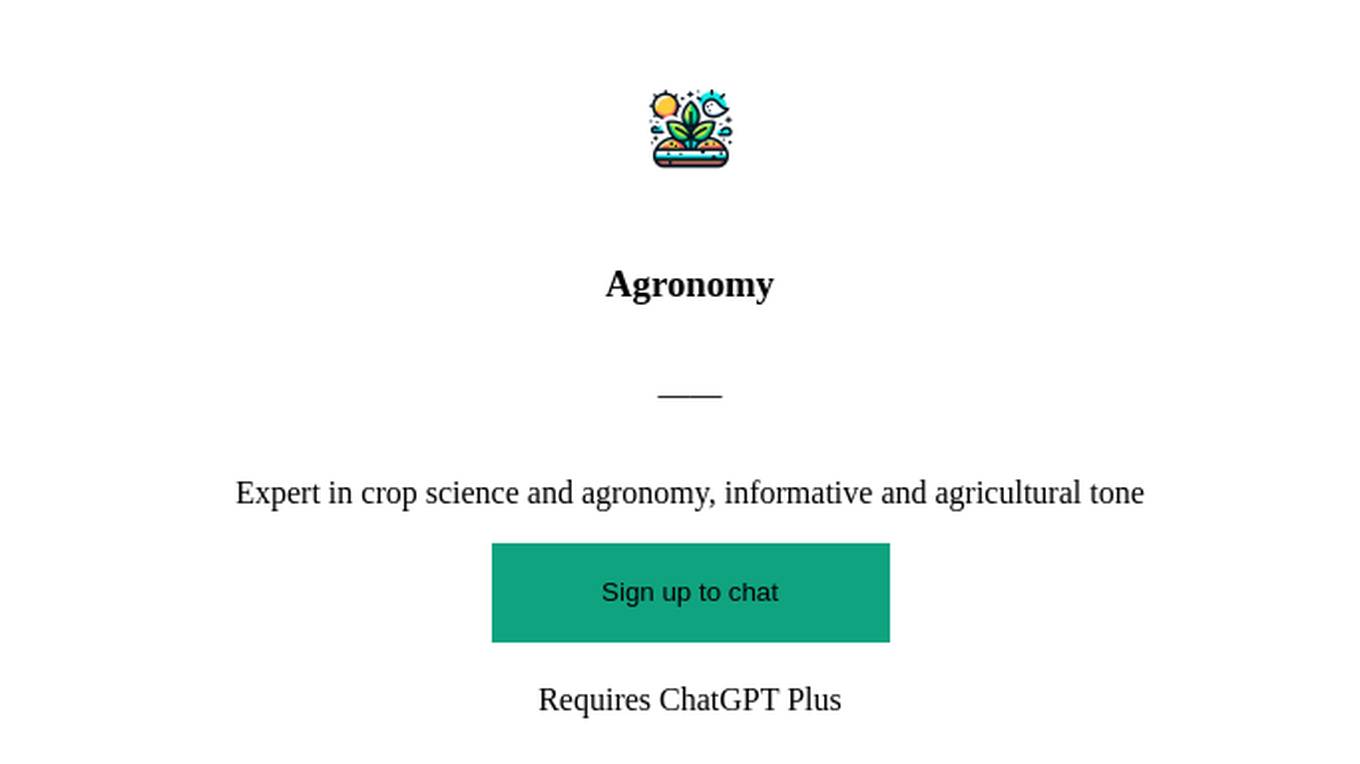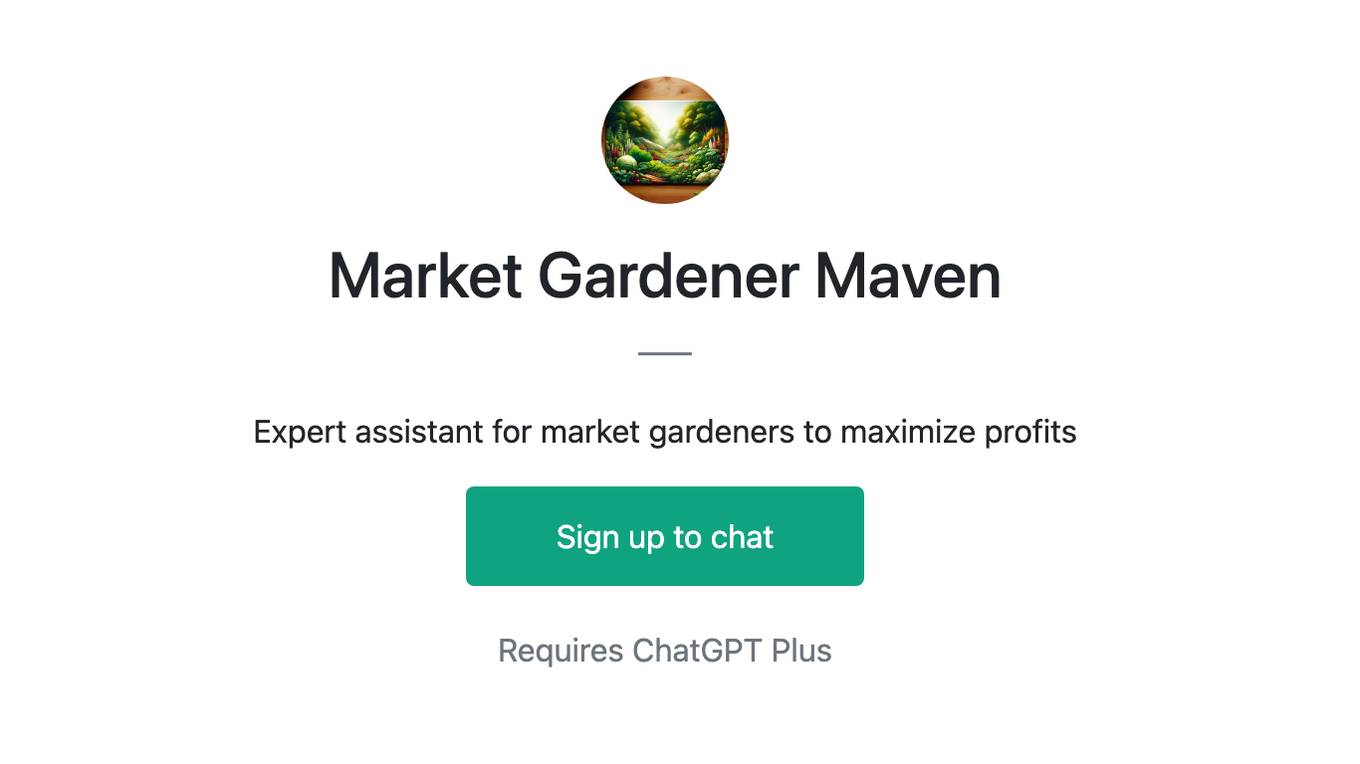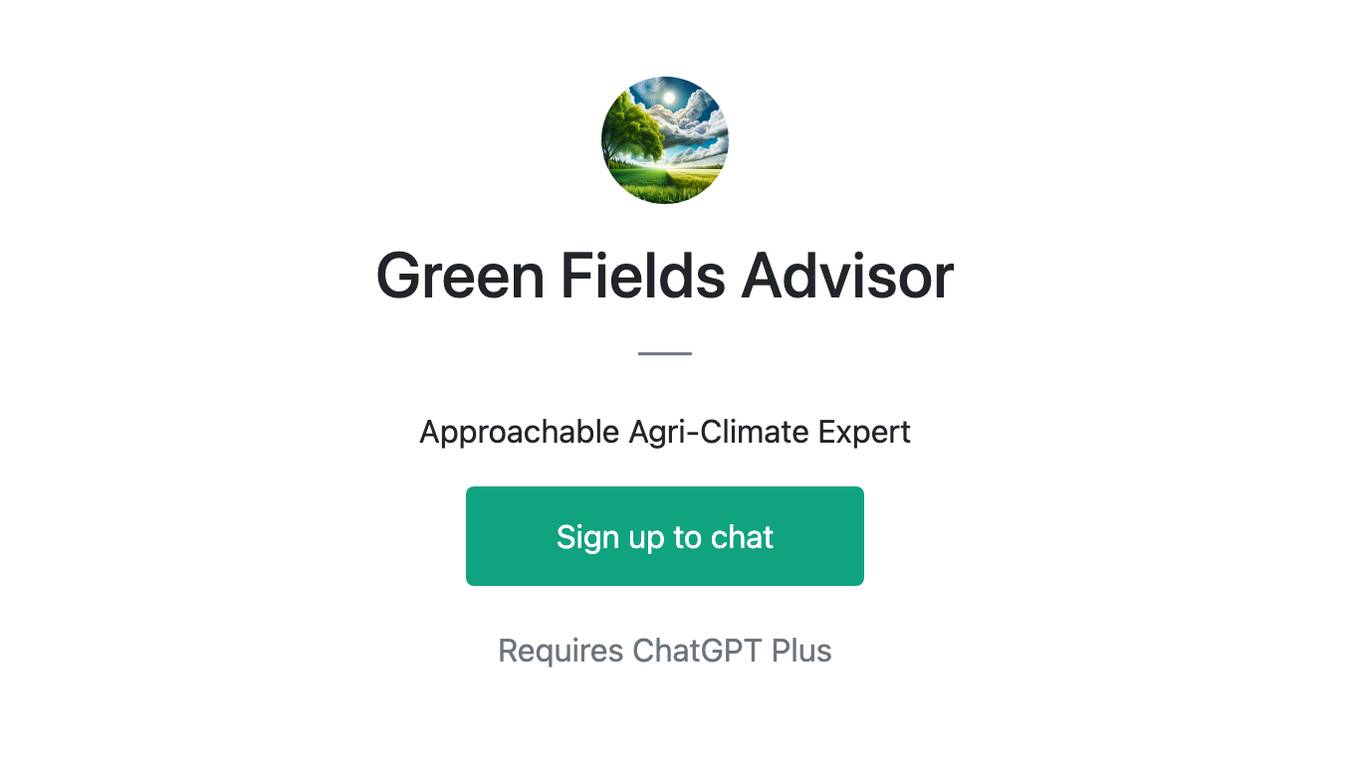Best AI tools for< Rotation Prediction >
Infographic
8 - AI tool Sites
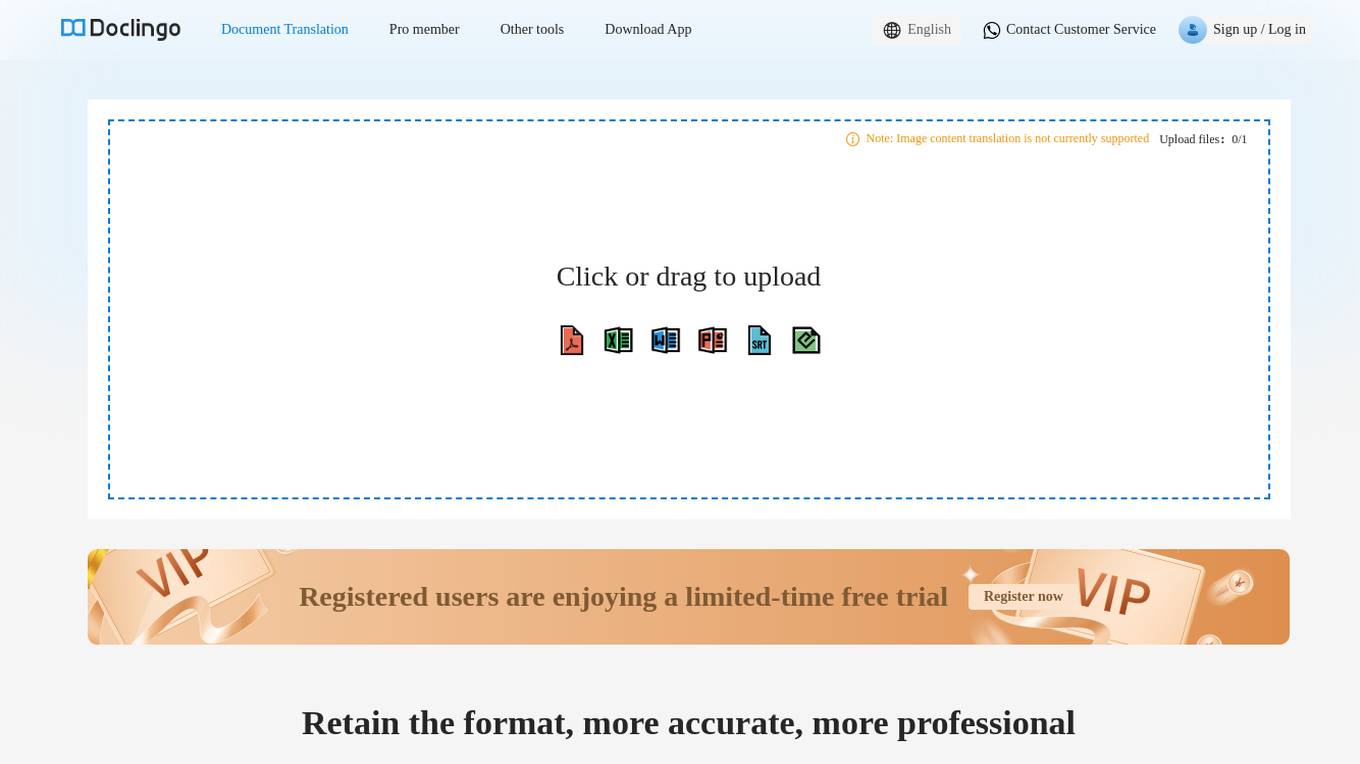
Doclingo
Doclingo is an AI-powered document translation tool that supports translating documents in various formats such as PDF, Word, Excel, PowerPoint, SRT subtitles, ePub ebooks, AR&ZIP packages, and more. It utilizes large language models to provide accurate and professional translations, preserving the original layout of the documents. Users can enjoy a limited-time free trial upon registration, with the option to subscribe for more features. Doclingo aims to offer high-quality translation services through continuous algorithm improvements.
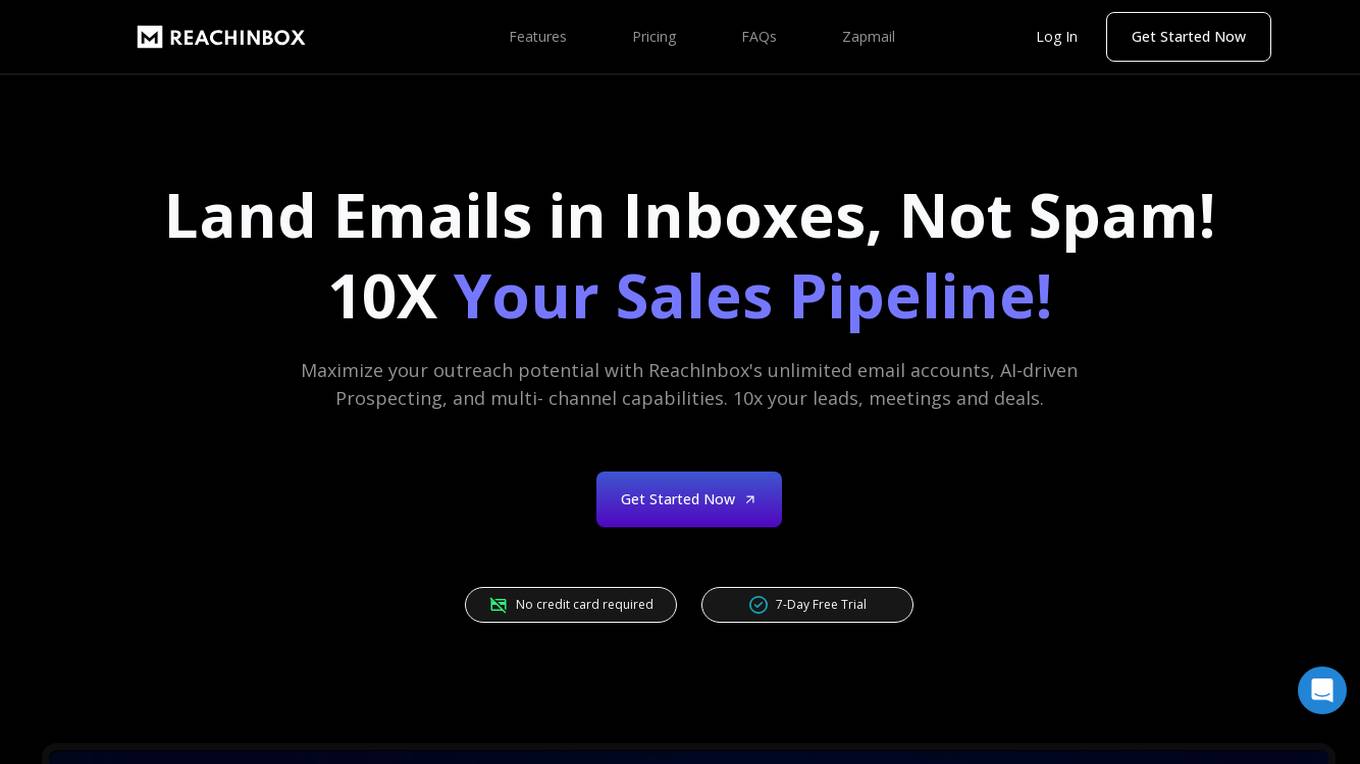
ReachInbox
ReachInbox is an AI-powered email outreach tool designed to help users send cold emails that land directly in the inbox. It offers features such as unlimited email accounts, AI-driven prospecting, multi-channel capabilities, and personalized email sequences. With ReachInbox, users can 10x their sales pipeline, leads, meetings, and deals by streamlining cold email outreach with smart automation and unified management system. The platform ensures high email deliverability rates and provides tools for advanced campaign design, A/B testing, and automated follow-ups. ReachInbox also integrates with CRM systems, social platforms, and productivity tools for seamless user experience.
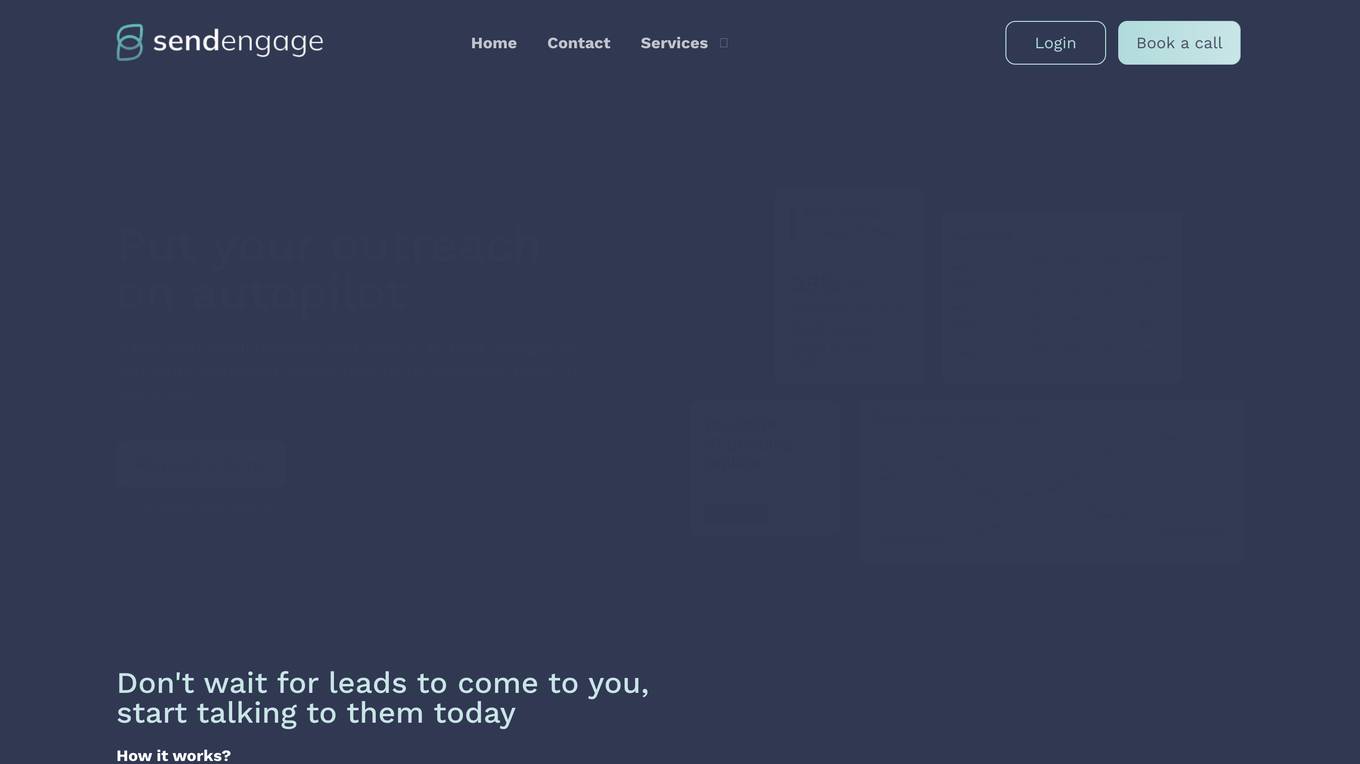
SendEngage
SendEngage is a B2B cold email platform that uses AI to read, categorize and route interested replies directly to your sales team, at any scale. It offers features such as unlimited inbox rotation, message variation split testing, automated follow-ups, open/reply/sentiment tracking, and AI reply management. With SendEngage, businesses can create high converting, automated email campaigns, manage replies and engage with interested prospects, and hand off interested leads directly to sales reps' main inboxes and map to CRM records.
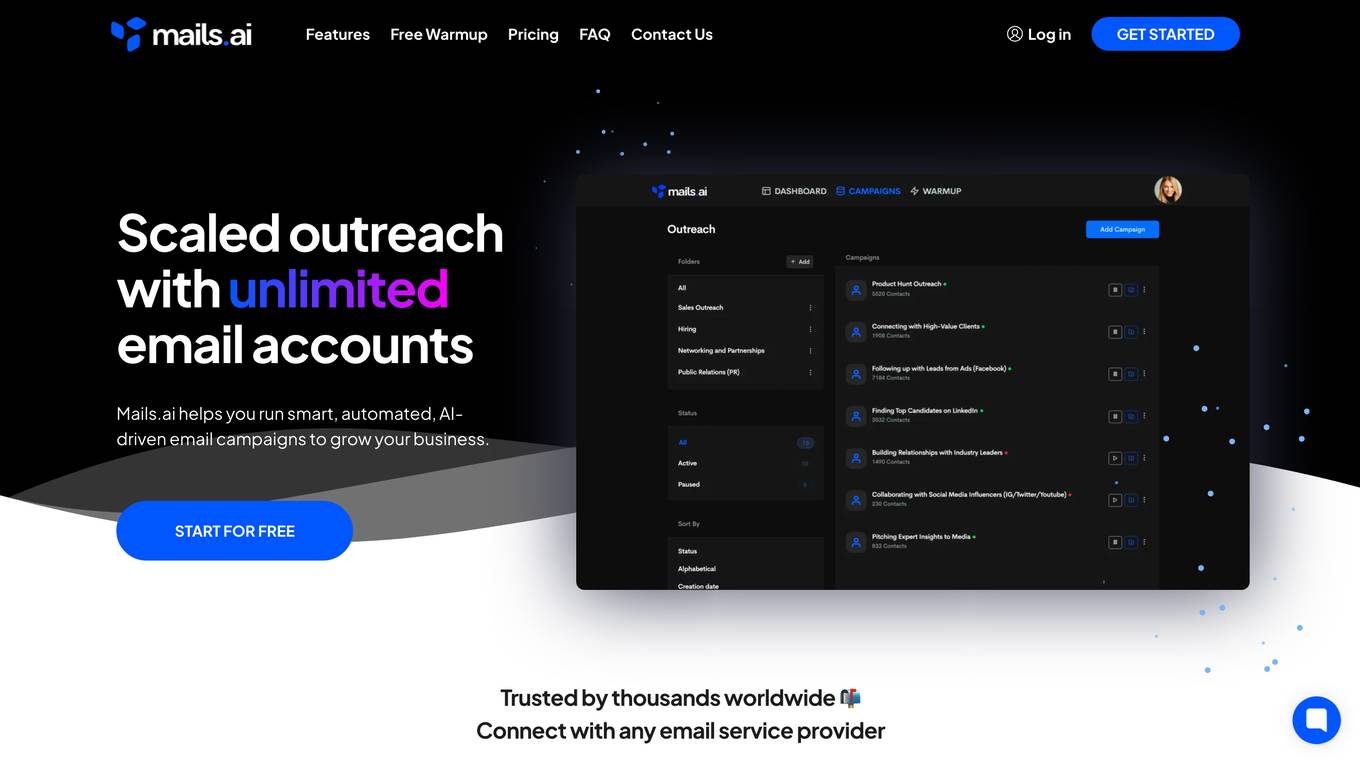
Mails.ai
Mails.ai is an AI-powered cold email software that helps businesses automate their email campaigns, connect with unlimited email accounts, and maximize their outreach. With its advanced features like AI email writer, email verification, and inbox rotation, Mails.ai ensures high deliverability and increased replies, leading to more revenue and business growth.
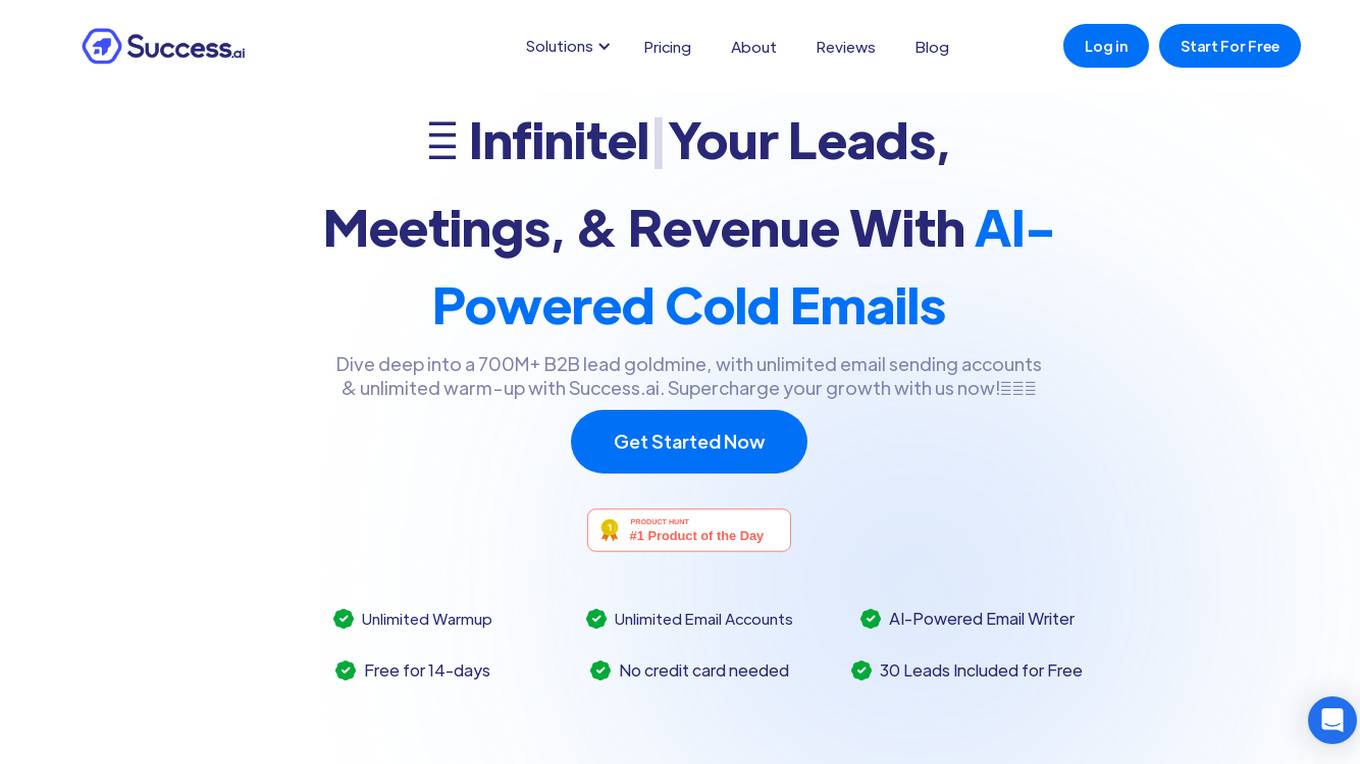
Success.ai
Success.ai is an AI-powered platform designed to help businesses unlock hypergrowth by providing solutions for lead generation, email outreach, warm-up services, and advanced AI writing. The platform offers unlimited email sending accounts, warm-up tools, and AI-powered email writing capabilities to supercharge growth and maximize efficiency. With a focus on B2B lead generation, Success.ai enables users to access a vast database of over 700 million verified prospects, personalize email campaigns using AI, and streamline lead responses for increased deal closures. The platform also offers advanced analytics, inbox rotation, and email validation features to optimize email marketing strategies and ensure high deliverability rates.

Pantarai
Pantarai is an AI-powered adaptive investment platform that offers an intelligent system to interpret financial markets in real time. The platform's proprietary AI expert system, Cartesio, manages daily ETP allocation supervised by real humans. Pantarai's adaptive investment strategy adjusts to shifting market conditions, aiming to deliver consistent returns with smoother volatility across a wide range of market outcomes. The platform invests in stock, bond, commodity, and cash proxy indices via low-cost ETFs, with a focus on multi-asset investing, systematic and AI-powered processes, tactical asset rotation, and resilience in market outcomes.
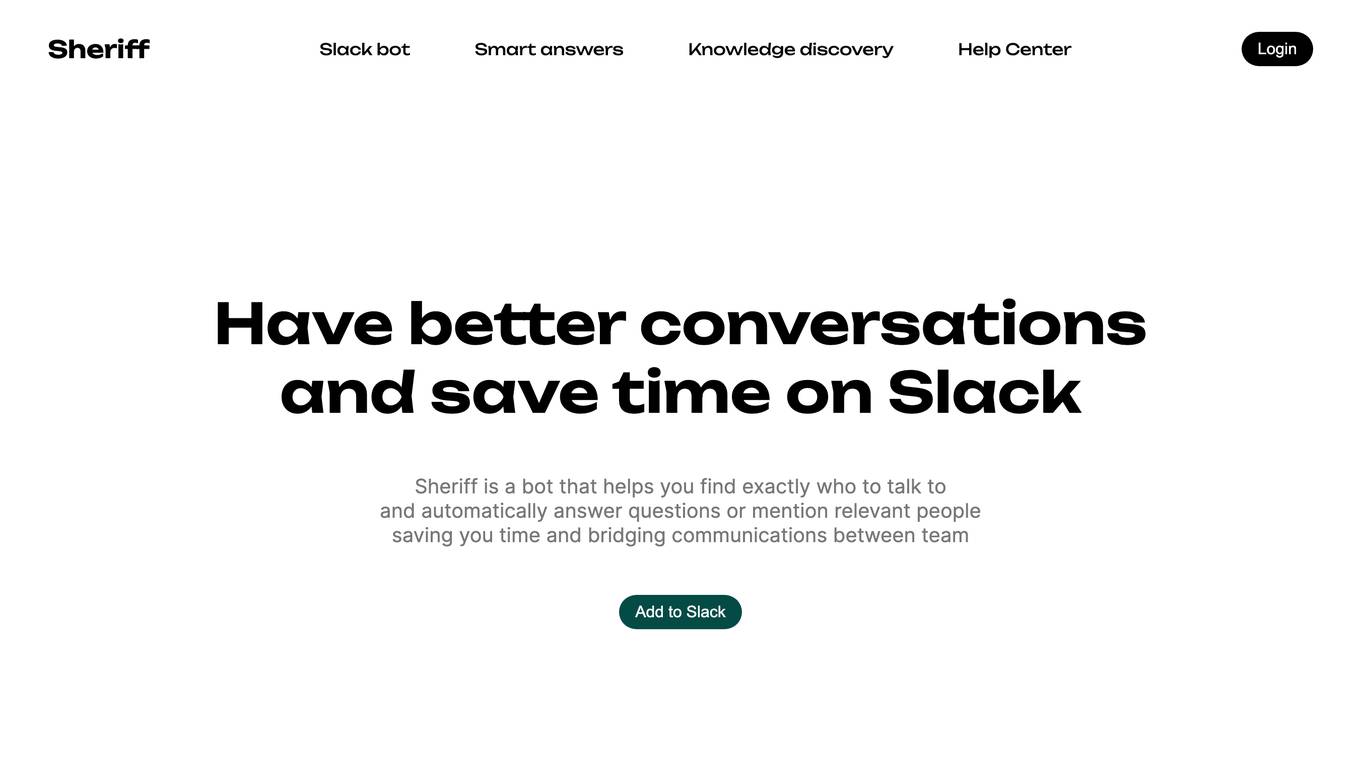
Sheriff
Sheriff is a Slack bot that helps you save time with rotating rosters and AI language understanding. It allows you to create a rotating roster of users in a channel that will become the designated @sheriff for a period of time. Whenever a user comes into this channel, they can tag @sheriff which will in turn notify the current user in the roster. This simple functionality can be used in multiple ways: Sheriff acting as the first point of contact for any questions from outside the team, Use sheriff in a support channel to answer incoming questions, Use sheriff to track a recurring role that cycles between team members.
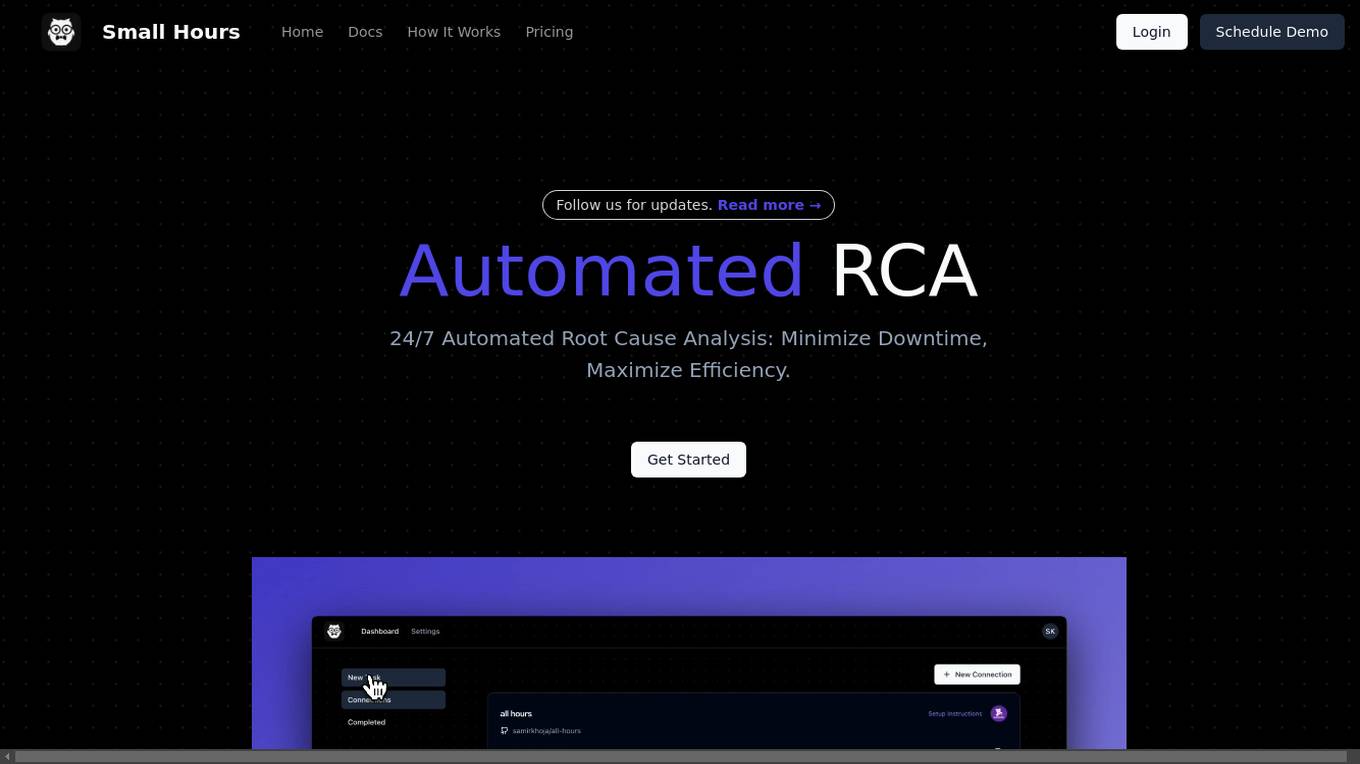
Small Hours
Small Hours is an AI-powered Root Cause Analysis (RCA) tool designed to minimize downtime and maximize efficiency for engineering teams. It offers automated RCA 24/7, streamlining on-call rotations, and providing intelligent triage of issues. The tool supports OpenTelemetry for seamless integration with any stack, hooks into existing alarms to identify critical issues, and allows for connecting codebases and runbooks as context and instructions. Small Hours is built by former engineers of Amazon and is optimized for enterprise velocity and scale, with a focus on resolving issues faster and providing accurate fixes.
1 - Open Source Tools
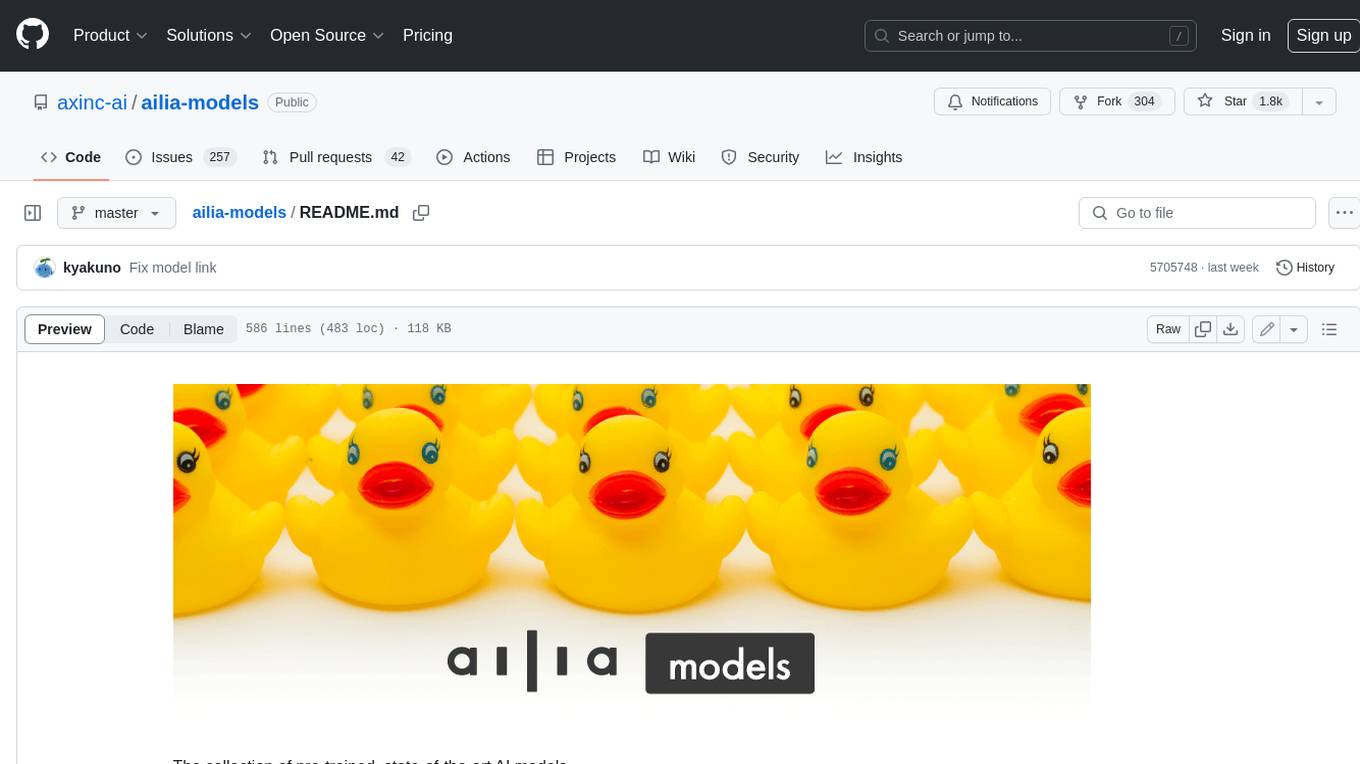
ailia-models
The collection of pre-trained, state-of-the-art AI models. ailia SDK is a self-contained, cross-platform, high-speed inference SDK for AI. The ailia SDK provides a consistent C++ API across Windows, Mac, Linux, iOS, Android, Jetson, and Raspberry Pi platforms. It also supports Unity (C#), Python, Rust, Flutter(Dart) and JNI for efficient AI implementation. The ailia SDK makes extensive use of the GPU through Vulkan and Metal to enable accelerated computing. # Supported models 323 models as of April 8th, 2024
6 - OpenAI Gpts
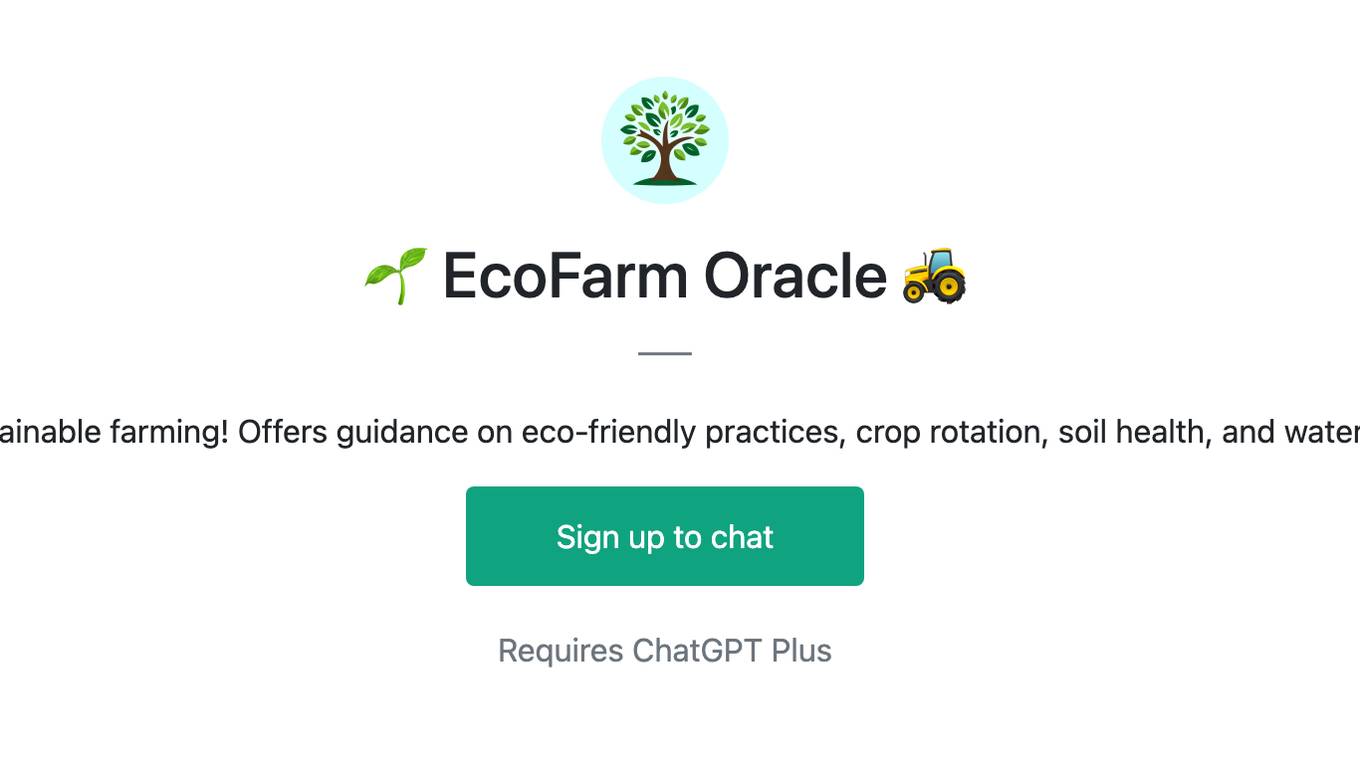
🌱 EcoFarm Oracle 🚜
Your go-to AI for sustainable farming! Offers guidance on eco-friendly practices, crop rotation, soil health, and water conservation. 🌲💧
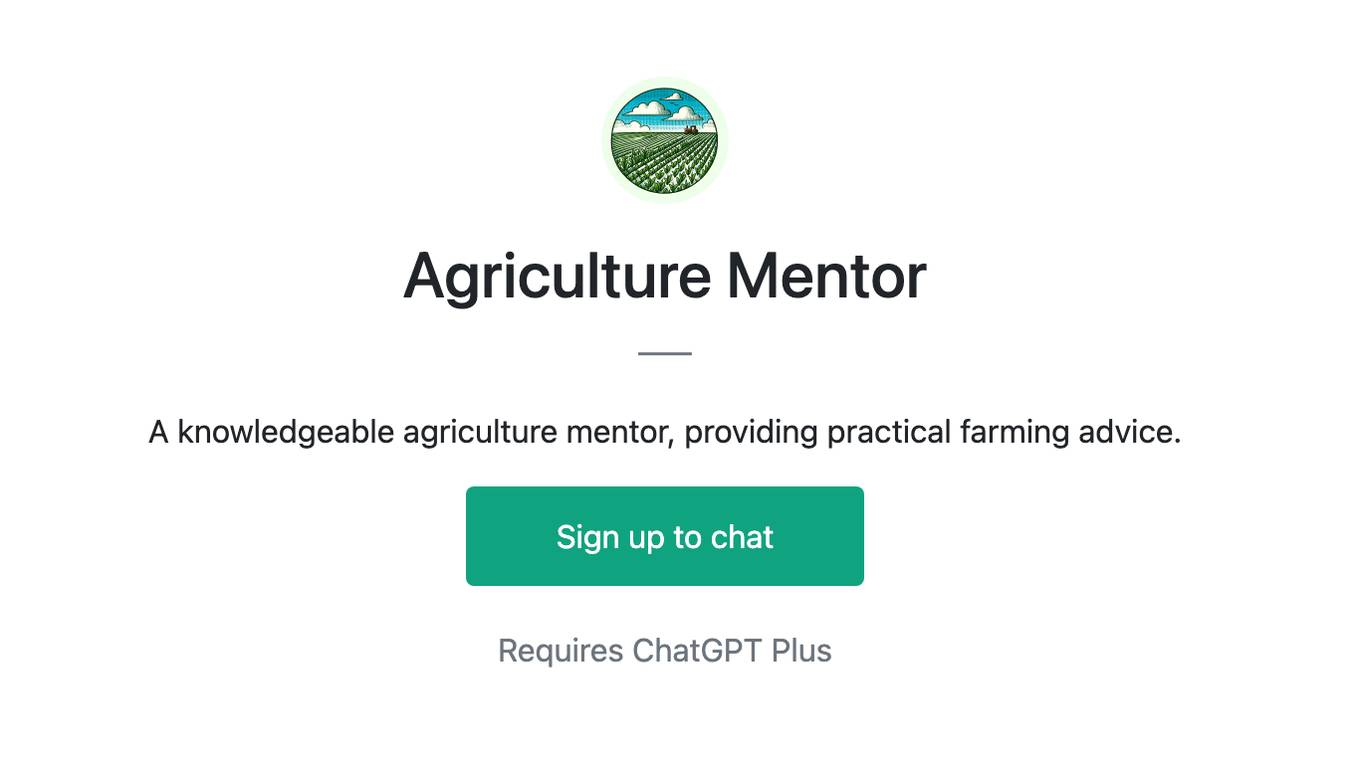
Agriculture Mentor
A knowledgeable agriculture mentor, providing practical farming advice.
Scraping GPT Proxy and Web Scraping Tips
Scraping ChatGPT helps you with web scraping and proxy management. It provides advanced tips and strategies for efficiently handling CAPTCHAs, and managing IP rotations. Its expertise extends to ethical scraping practices, and optimizing proxy usage for seamless data retrieval
